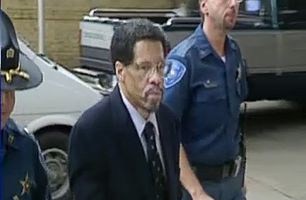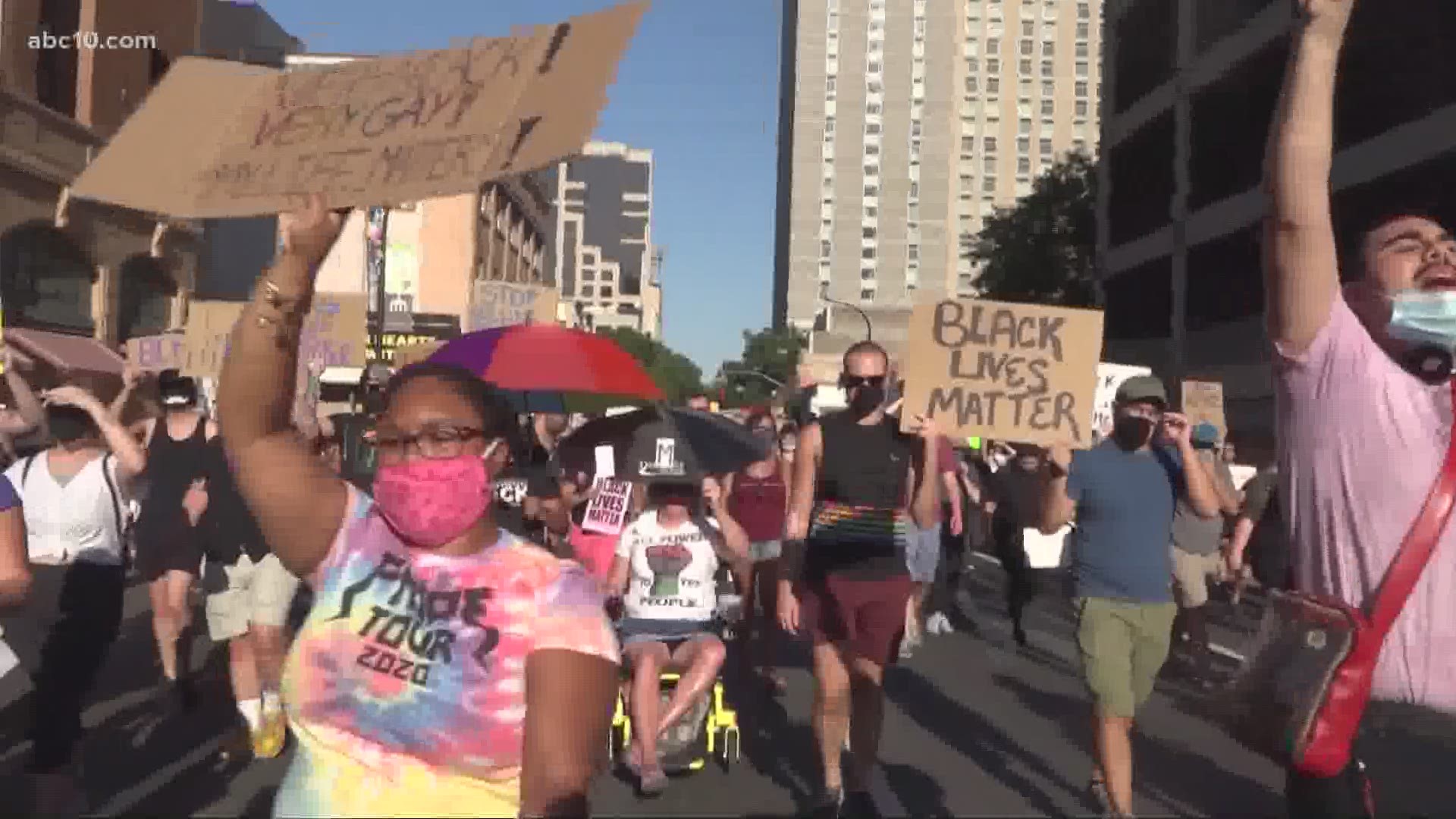Albert Woodfox, the last of the "Angola 3" inmates who spent four decades in solitary confinement in a Louisiana state prison, was released Friday after pleading no contest to manslaughter in the 1972 killing of a prison guard.
Woodfox was sentenced to 42 years at the hearing in St. Francisville, La., and — with credit for time served — walked out of prison hours later on his 69th birthday.
With only a few months served sporadically among the general prison population over 45 years, Woodfox is believed to have served the longest period of time in solitary confinement of any inmate in the United States, according to The Times-Picayune.
Jasmine Heiss, of Amnesty International USA, which took up Woodfox's case, said his release should "mark a pivotal new chapter in reforming the use of prolonged solitary confinement in U.S. prisons and jails."
Woodfox, a Black Panther activist at the Louisiana State Penitentiary at Angola, always maintained his innocence in the killing of prison guard Brent Miller more than 40 years ago. He and co-defendant Herman Wallace argued they were wrongfully accused because of their demands for better conditions in prison.
George Kendall, Woodfox's attorney, said the no contest plea does not amount to an admission of guilt.
"It means simply that (Woodfox) does not contest that the state would present evidence at a new trial from witnesses who said he committed this crime. Mr. Woodfox continues, as he always has, to maintain his innocence," Kendall said, according to The Times-Picayune.
Woodfox, Wallace and a third Black panther activist, Robert King Wilkerson, were dubbed the "Angola 3" because of their lengthy time in solitary confinement. Wallace died in 2013 shortly after his release. Wilkerson was released in 2001 after his conviction was overturned.
The three argued they were kept in solitary so they would not spread their political beliefs among the general prison population.
In a 2008 deposition, Solitary Watch reports, Angola warden Burl Cain said Woodfox "is still trying to practice Black Pantherism, and I still would not want him walking around my prison because he would organize the young new inmates. I would have me all kind of problems, more than I could stand, and I would have the blacks chasing after them.”
The state denied placing Woodfox in solitary confinement, saying he was allowed out for one hour each day and referring to the 6 x 9 foot cells as "closed-cell restricted."
Miller's siblings, who were present at the courthouse in St. Francisville, La., for the hearing, strongly criticized Friday's outcome, The Advocate reports.
"A piece of our hearts has been jerked out of our bodies," Stan Miller said, while facing Woodfox at the courthouse, according to the Baton Rouge newspaper. Miller was stabbed to death at the age of 23.
Woodfox's attorney, Kendall, said the outcome "brings much-needed closure ... He served one of the harshest sentences for years," The Advocate reports.
Woodfox was twice convicted of killing Miller, but both cases — in 1973 and in 1998 —were overturned after judges determined there were problems with how the grand juries were selected.
In 2015, U.S. Distct Court Judge James Brady ordered the state to release Woodfox and banned it from retrying him for the crime. Woodfox argued that evidence was mishandled, witness accounts were rejected and the key witness was deceased.
Brady, in his ruling, noted the state in 2015 formally rearrested and recharged Woodfox, who was still in prison, because it believed the court was again about to order his release.
The judge said the "state’s tactics in attempting to moot the issues gives this court little confidence that any future actions in this matter will be handled fairly."
At the time, the court noted Woodfox was "a frail, sickly, middle-aged man who has had an exemplary conduct record for over the last 20 years."
The 5th U.S. Circuit Court, however, overturned Brady's ruling, setting the stage for Friday's third trial.

![Angola 3 Albert Woodfox [image : 80624886]](http://www.gannett-cdn.com/-mm-/440fd0edcc3552c4375bfdf4e3eb17e4cae09138/c=127-0-2785-2272/local/-/media/2016/02/19/USATODAY/USATODAY/635914946598506828-AP-Angola-Three-001.jpg)

